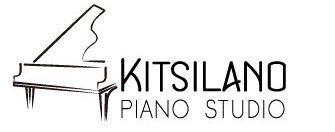Providing beginner piano lessons for your child is perhaps one of the best things to do during their education. Learning the piano indeed has many benefits, which facilitate the future social life of the individual.
Through children’s piano lessons, your child will learn to be more lively, more persevering and sociable, more creative, sensitive, and curious.
These virtues can be greater if the child will start the piano from an early age. Indeed, if your child learns to read a piano score before school teaches him/her to read a book; he/she will be at a significant comparative advantage over non-musical children.
To make the beginner piano, whatever your ambition – to play for pleasure or to study the piano to become a pianist, the piano must represent pleasure in the effort mobilized.
It requires motivation, willpower, rigor, and perseverance. The magic of piano and music, in general, is that these four parameters are self-sustaining and even reinforced as musical practice increases.
Jazz piano, classical piano, variety, rock, tango … different styles modify the content of piano lessons. From private lessons at the conservatory to online piano lessons, the training offer is vast for your little ones. Especially in the internet age where it is easy to find free online tutorials and lessons to learn how to play the piano, but this wouldn’t advance your child very far. It’s up to you to choose the method and style that would best suit your offspring.
Here are the reasons why it is good to enroll your child in beginner piano lessons so that he/she learns to play correctly.
Why is learning the piano good for children?
We cannot stress it enough: teaching your child to play the piano generates positive externalities, that is to say, causes unexpected positive effects, which will seriously facilitate his social integration.
Here are the major benefits of the piano for students:
Learning the piano, this prestigious instrument is a powerful way to meet friends and colleagues his own age.
Music and the piano have a strong social role because your loved ones at a young age, in musical exploration classes, will meet other children of his age.
As your child grows up, he/she will be able to play with others at the conservatory, in a piano school, in a group, or an orchestra. Likewise, an exchange relationship will be established with his/her private piano teacher.
But, if your child learns music before school, the student-teacher contact will have been one of his first relationships with an adult outside the family.
The piano stimulates the cognitive and academic capacities of the child.
The hearing area and motor skills of musicians are more developed than with a non-musician. Listening forges the musical ear and the coordination of organs on the piano improves movement in space.
As a result, a pianist will have more chances of having better academic results than those without musical training. Music lessons accustom your child to the teacher-pupil relationship, to discipline and learning, and the effort.
Learning music theory and playing on the 88 keys of the keyboard also has a role in the development of the brain: it becomes more versatile, more inclined to internalize different languages , and to quickly read notes and piano chords. This makes it easier to learn other instruments and to understand music as a whole.
Learning the piano, therefore, has a significant impact on the cognitive dispositions of the individual.
Besides the social and cognitive faculties of the child, playing a musical instrument also has several virtues:
- Piano is a powerful anti-stress: while playing, the child takes pleasure, he forgets his anxieties and gives off satisfaction.
- Piano gives the child self-confidence and self-esteem (by managing to play a song, for example).
- Piano promotes team spirit, listening, and sharing values essential to life in society.
- Piano acts on sensitivity: it makes the brain more creative, more expressive.
Now that you know the benefits of learning a piano for your child, it’s time that you enroll him/her for piano learning sessions with a professional teacher.
